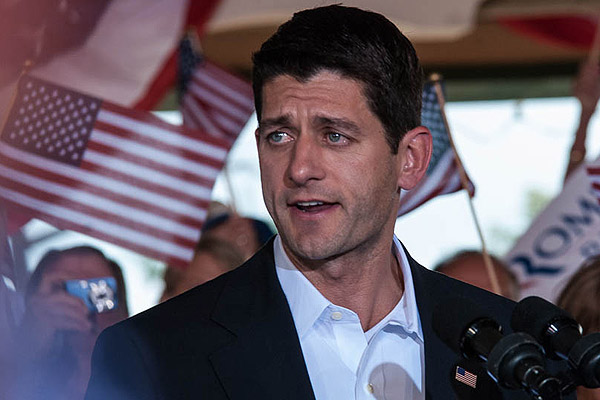
Paul Ryan took a lot of heat today for some loose facts, but what stuck inside my brain last night was some loose rhetoric. I was going to let it slide, but then Steve Bogira remarked on it, and it's been buzzing in my head like a dying fluorescent bulb. (The hardest part of writing for me has always been transitions, so the dissonance is something I can't unhear.) Clipped from context, it doesn't sound out of place coming from an Ayn Rand-influenced pol:
None of us have to settle for the best this administration offers – a dull, adventureless journey from one entitlement to the next, a government-planned life, a country where everything is free but us.
Listen to the way we’re spoken to already, as if everyone is stuck in some class or station in life, victims of circumstances beyond our control, with government there to help us cope with our fate.
It’s the exact opposite of everything I learned growing up in Wisconsin, or at college in Ohio. When I was waiting tables, washing dishes, or mowing lawns for money, I never thought of myself as stuck in some station in life. I was on my own path, my own journey, an American journey where I could think for myself, decide for myself, define happiness for myself. That’s what we do in this country. That’s the American Dream. That’s freedom, and I’ll take it any day over the supervision and sanctimony of the central planners.
Bogira looks at this and concludes: "From Ryan's vantage point and that of most Republicans, we are all simply captains of our ships," contrasting the relative privilege Ryan grew up in on Garfield Avenue in Janesville (where his family was quite prominent) with the constraining circumstances that surround so much of Garfield Boulevard.
But the odd thing is what preceded Ryan's paean to economic mobility:
College graduates should not have to live out their 20s in their childhood bedrooms, staring up at fading Obama posters and wondering when they can move out and get going with life. Everyone who feels stuck in the Obama economy is right to focus on the here and now. And I hope you understand this too, if you’re feeling left out or passed by: You have not failed, your leaders have failed you.
Selling the American dream of economic mobility is hard when people are feeling immobile. And it's something Ryan has been grappling with for awhile. The House Budget Committee, chaired by Ryan, released "A Deeper Look at Income Inequality," which touches on the issue (PDF):
However, in a recent article for National Review, the Brookings Institution’s Scott Winship – a former research manager for the Economic Mobility Project – explained that the problem illustrated by these studies is not a lack of mobility between middle- and upper-income groups in America. Rather, it is mobility from the very bottom up – especially for young men – where the United States lags behind. A variety of factors associated with entrenched poverty reduce mobility for this income group. Winship writes that children of unwed mothers, for example, are less likely to escape from the bottom of the income distribution than other children. Winship’s analysis details the tragedy of broken families and minority groups that are disproportionately remaining at the bottom of national income distribution. “Simply put, two-thirds of black children experience a level of neighborhood poverty growing up that just 6 percent of white children will ever see,” Winship writes.
In an election laser-targeted at the middle class, Winship has been one of the few people crying, "it's poverty, stupid": "The attention we insist on paying to the overstated problems of the middle class come at the expense of the more critical challenges facing the poor."
Almost a year later, Ryan hasn't figured out how to pivot from the rhetorical optimism of self-reliance required by his party with the pessimism required of a challenger running during a down economy, which is why his speech took such an unannounced U-turn. A better writer could have built a strong rhetorical bridge between the two, but I'm glad no one did—that bridge isn't very strong in real life, so inadvertently or not, it was a subtle moment of honesty.
Photograph: monkeyz_uncle (CC by 2.0)


